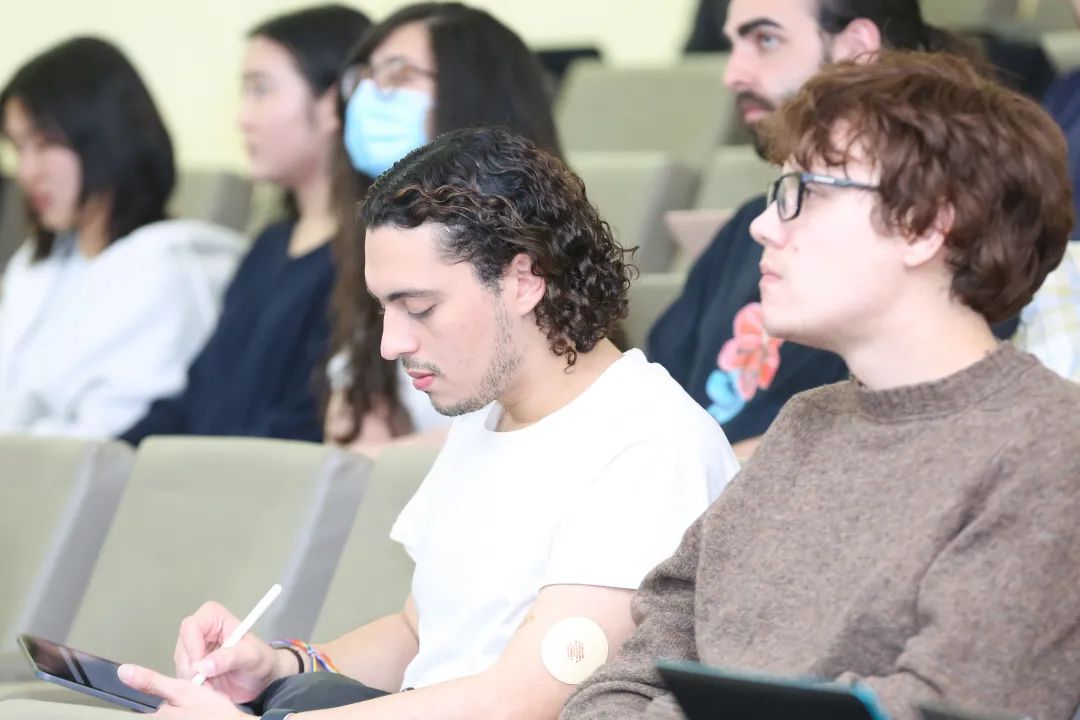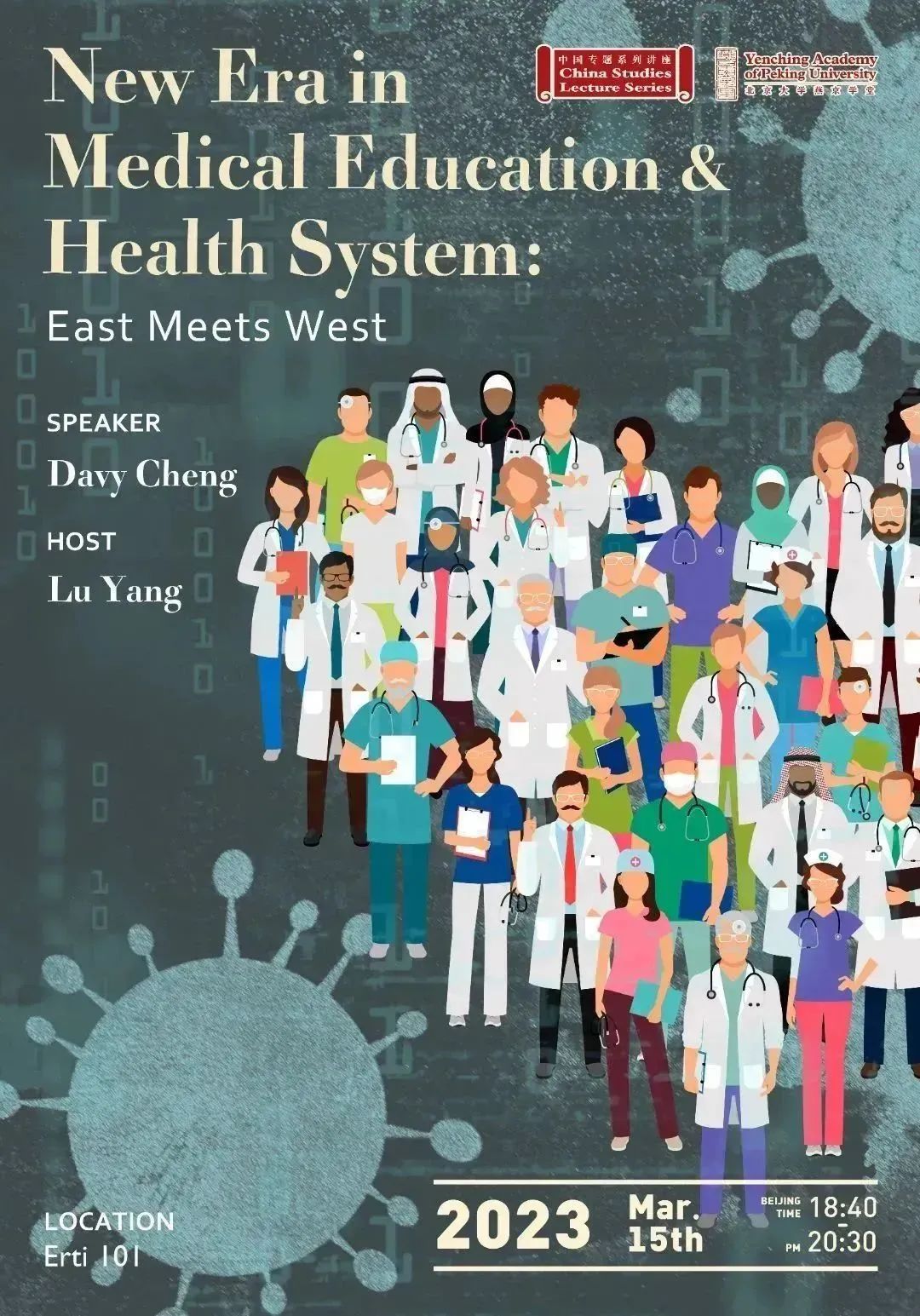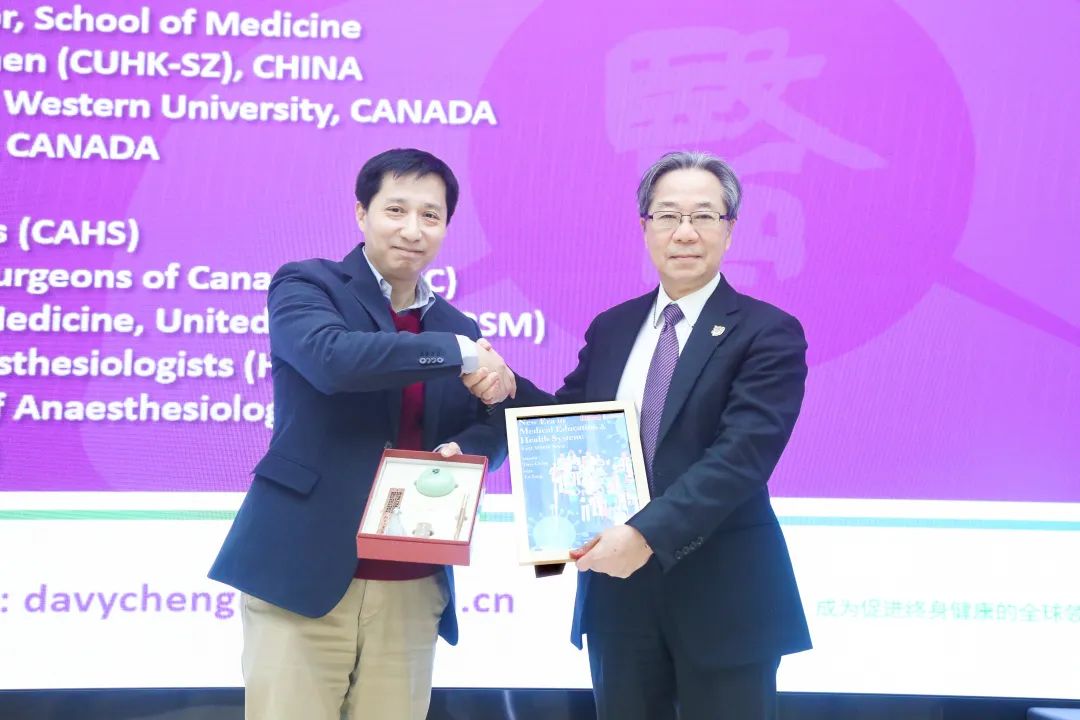On March 15, Professor Davy Cheng, Founding Dean and Presidential Chair Professor at the School of Medicine, the Chinese University of Hong Kong-Shenzhen (CUHK-SZ), delivered a lecture titled “New Era in Medical Education Health System: East Meets West”. The session is part of Yenching Academy’s Topics in China Studies Lecture Series for the 2022/2023 spring semester. Hosted by YCA Director of Graduate Studies Lu Yang, the class aimed to discuss how two transected unprecedented events – the COVID-19 pandemic and the Artificial Intelligence (AI) revolution in health and healthcare – have challenged and created transformational opportunities in medical education, research and healthcare. Also, the class covered the current scope of medical training in China and North America, and the alignment and integration of AI curriculum in training a new generation of doctors in China.

Prof. Cheng started with a brief background of the COVID-19 pandemic, the number of positive cases and casualties since the first case and clusters were reported in Wuhan in December 2019, and the impacts of health systems and workers overburdened and undersupplied in the fight against the virus. He also presented a brief history of the AI revolution, noting that AI involves any technique that enables computers to mimic human behaviour and entails several sub-sets – machine learning, deep learning, and cognitive learning – that allow devices to improve with experiences and along multilayer neural networks. Likewise, Dr. Cheng discussed the two branches of AI in medicine for improving patient care: virtual (algorithms) and physical (medical objects, sophisticated robots and robotic surgery).

Prof. Cheng stated that the two events catalyzed opportunities for advancing medical education and health systems, with the core underpinning goal of ensuring every citizen has the fundamental right to access high-quality and value-based healthcare. First, he discussed three deep-rooted problems the pandemic exposed in modern health systems: systematic fragmentation, perverse incentives, and structural inequalities, noting that financing, knowledge sharing, accountability, continuous learning, and public health integrity were some of the collaborative transformational efforts that could solve the problems. Besides, he emphasized AI’s role in this venture, proposing the ‘3 Rs’ – readiness, response, and recovery – in preparing future health systems, especially considering the Covid-19 pandemic will not be the last. According to Dean Cheng, “There will always be communicable diseases, but the real question is how we ready ourselves for the next pandemic. So, we need to work together, setting the direction, not only for human resources, training, procurement and supply chains management but also utilizing AI technologies and reforming healthcare systems.”

AI provides tremendous prospects to address hiccups in healthcare education and systems. Despite the Covid-related disruptions to medical education, including cancelled in-person clinical skills sessions, shortened clerkship, online coursework, suspended clinical rotations, and inability to explore specialities, which reduced trainees’ competencies and altered workloads, Prof. Cheng noted that new AI tools were adopted to teach trainees, preventing them from exposing themselves to the virus. Also, AI-assisted health screening and diagnosis and the increasing use of wearable devices are other avenues for improving public health by increasing doctors’ certainty of the precise treatment method(s) to adopt and saving time in patient care and treatment.
Concerning the increasing demands and problems of healthcare needs in China, Dr. Cheng noted that undertaking some college-level medical programs could be challenging, and medical education falling behind in updating education concepts in the era of AI exacerbates the issue. These issues make it difficult to sustain new physicians’ training to meet the ageing population’s health needs and support medical research.
To mitigate these challenges, Dean Cheng stated that the Chinese central government had invested tremendously in setting up the Chinese University of Hong Kong Shenzhen (CUHK-SZ) and building a medical campus and medical centre. CUHK-SZ aims to train a new generation of medical professionals, advancing innovative research and high-quality care. He further explained that meeting this mission involves, on the one hand, cooperation between the medical school, government, hospital, and industry in China, and on the other, international collaboration with leading Western medical institutions to integrate the best of both worlds into medical talent training in China. Prof. Cheng also stated that the medical school had attracted leading scientists, including three Nobel laureates – Arieh Warshel (2013), Brian Kobilka (2012), and Aaron Ciechanover (2004) – in different medical research priorities like cancer biology, neurosciences, stem cells, AI, and traumatology.


Yenching Scholars raised several questions following Prof. Cheng’s presentation. One question concerned how AI and big data would solve or exacerbate the challenges facing private healthcare delivery systems in many parts of the world. Dean Cheng explained that transforming the burden of disease and healthcare requires a mature, well-defined, coordinated, and connected private healthcare system that saves patients time and money in running already conducted tests. He added that AI could facilitate connection and information-sharing between medical institutions and specialists to improve the efficiency and effectiveness of medical consultation, diagnosis, and treatment plans.
Another student inquired about the issues related to personalized medicine (given the different genetic, environmental, and socio-cultural contexts of patients) and healthcare access inequality across the globe. Dr. Cheng explained that while the term ‘personalized medicine’ may be new, the field of precision medicine is not, especially considering advances in blood transfusion, where giving the wrong blood type to a patient can cause severe and life-threatening reactions. AI tools can help doctors generate the data they need to prevent, diagnose, and treat patients vis-à-vis their unique genetic makeup. However, a major concern with the use of AI tools is cybersecurity and data privacy. People are more concerned about how their data is generated, stored, and used. In response to the inquiry on healthcare access inequality, Prof. Cheng noted that poor funding is a major driver of access inequality since getting comprehensive, value-based medical care is expensive. The government needs to improve funding to the health sector, block loopholes in national health schemes, and foster an enabling environment for collaboration with stakeholders in the health sector. Also, healthcare practitioners must improve service delivery, focus on outcomes, and advise policymakers on health interventions through intelligence-based evidence for clinical decisions.